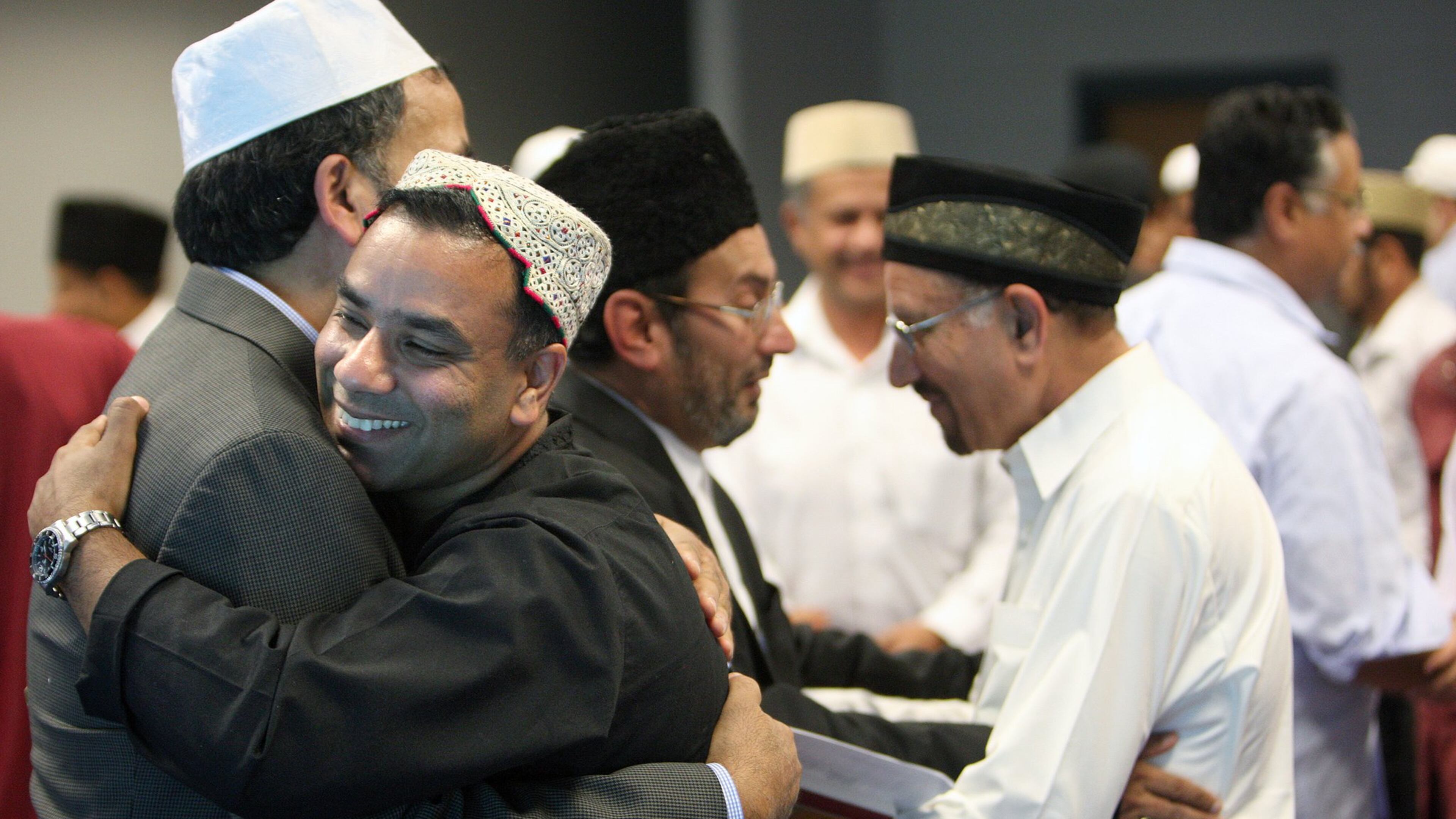How will COVID-19 change the way Muslims observe Ramadan?

Arafat Afaneh lives 100 feet from the Islamic Center of Savannah.
The red brick mosque plays a central role in his life.
It’s where he goes to pray and to spend time with fellow Muslims.
This Ramadan, though, things will be different. The sacred month begins in or around April 24.
COVID-19 has changed the way many of the world’s nearly 2 billion Muslims will observe the holy month.
“This is the saddest year in my life,” said Afaneh, 57, a condo building owner, referring to the next 30 days. “I’ve never in my life gone through Ramadan without being in the mosque.”
Related: Abdullah Jaber takes helm of CAIR-GA
Afaneh said worshippers have been able to go to the mosque following social distancing guidelines, but they have not held the larger congregational prayers. Instead, people have prayed in their homes.
This year, the mosque won’t be filled with people for nightly congregational prayers. Nor will congregants and others gather together for Eid al-Fitr, or the “Breaking of the Fast,” the feast that signals the end of Ramadan.
“My heart is attached to this place,” he said.
Gov. Brian Kemp recently signed an order reopening some Georgia businesses, as early as Friday, if they meet health recommendations.
While he has never banned in-person worship services, he had suggested online or drive-in services. Now, he’s confirmed that they can hold in-person services, if such practices as social distancing can be achieved.
Still, many houses of faith are sticking to livestreaming services, saying the order is coming too soon.
A coalition of the state’s largest mosques, for instance, will remain closed during the month of prayer, fasting and spiritual reflection.

The agreement was between the Georgia chapter of the Council on American-Islamic Relations (CAIR-GA) , the Islamic Circle of North America, Muslims of the United States of America, and Majlis Ash-Shura.
The coalition of Georgia mosques recommends that all mosques and community centers implement online and other creative platforms to fulfill the spiritual, social and educational needs of their community.
Authorities in the holy cities of Mecca and Medina in Saudi Arabia advised people to pray at home to avoid getting sick or spreading the potentially deadly virus.
However, some nations have made exceptions.
In Pakistan, government officials backed off rules limiting large mosque gatherings because of the pandemic, according to the NPR.
Instead, Pakistani officials say it will not apply during Ramadan.
Craig Considine is a professor in the Department of Sociology at Rice University and author of “The Humanity of Muhammad: A Christian View” and “Islam in America: Exploring the Issues.”
He said the importance of good hygiene and the risk of inadvertently spreading disease was something the Prophet Muhammad addressed.
Muhammad said, “If you hear of an outbreak of plague in a land, do not enter it; but if the plague breaks out in a place while you are in it, do not leave that place.”
Considine said in recent weeks, most Christians observed Easter virtually as did the Jewish community during Passover, and now, Muslims will do so during Ramadan.
More: Without services, many churches find COVID-19 hits the giving
“The situation, to me, is quite baffling,” said Imam Arshad Anwar of the Roswell Community Masjid. “It’s hard to imagine a Ramadan without the mosque.”
This year, the mosque’s educational programming will be virtual. Usually it’s a time when people get together and discuss things.
He is asking that people say the nightly prayers, which are usually congregational, either alone or with their families at home.
There will also not be the Eid-al-Fitr feast, which he said can draw nearly 2,000 people at the mosque.
“This is going to create an entirely different experience for us.”


